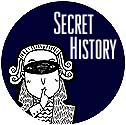
Comment
on this story |
 |

The law requires no man to run
by Jack Neely
It had just gotten dark, and people on the residential west side of town were just sitting down to supper. It was dark, and barely cool enough to close the windows. But some thought they heard a woman scream.
Capt. Sam Wardell was the night watchman at City Hall, which in October, 1892 was in a building in the center of Market Square. So far it was a quiet night, for a Friday; other attractions had drawn folks to other parts of downtown. At the courthouse, a couple of Democratic Party political heroes were urging Knoxvillians to vote for Grover Cleveland.
The Grau Opera Co. was in town, just a few years before their greatest fame as the resident company of the Metropolitan in New York. But their star, Ada Bernard, was ill, described as "very sick," at the Schubert Hotel on Gay Street. Grau had already determined to leave her in Knoxville, but decided to give a benefit show for her, a performance of Auber's comic opera, Fra Diavolo—"and other novelties," which included a Serpentine Dance and a Skirt Dance, and performances of "Dixie" and "Swanee River."
None of that excitement carried over to Market Square, where most of the commerce had ended around dark. Bored, Capt. Wardell was drumming his fingers on the counter. But it was early yet. It was a clear night, cool and just a little breezy.
The slow hour hand was just moving toward 8 p.m. when a young man, no more than 18, burst in the door. He was a healthy-looking young man in a checked work shirt and "pantaloons of a flashy and cheap quality." If Capt. Wardell had observed him closely, he would have noticed that his clothes were spattered with blood.
"I come here to give myself up," he said. "I have just shot my father."
The teenager's name was Francis Baker. Capt. M.V. Birdwell, of the police force, showed up on his regular rounds, and took him into custody. Word got around the Square that in spite of the opera company and orators elsewhere in town, there was a father-killer at City Hall. Within minutes, the place was packed.
The father-killer was right there. People off the street gunned questions at him; though "he seemed to be suffering the most intense agony," he dutifully answered each.
Later, in his cell on Market Square, "his eyes drooped and his whole body seemed to be shaken with remorse," wrote the Tribune reporter. "It was one of those sad scenes that the nighthawks of journalism so frequently run across, while the guileless world turns on a downy couch and sleeps. Homeless, friendless in the eyes of the law he sat like a statue and told his story to the Tribune reporter. 'It was like this,'" he said.
Baker worked in the tannic-acid factory in Lonsdale, and lived nearby, in the two-story wood-frame house he shared with his parents. His father, Cyrus Baker, a 42-year-old railroad agent originally from Union County, had been drinking a lot lately. "An almost constant devotee at the shrine of Bacchus," they said.
That evening, about 6:30, Francis was home in the living room reading when his father burst in the door. He was drunk. He threw a sack of meat at the boy, striking him in the head, then threw a package of eggs. "Why the hell didn't you meet me?" he demanded. Francis used to meet his father near the depot, but the last few times he tried, his dad didn't show. "Frenzied with whiskey," he began beating the boy with his cane. Francis ran upstairs and retrieved a double-barrel shotgun.
The family's boarder, a Col. Thoms, heard the commotion and stepped on the landing to watch. When the father reached into his pocket, where his wife knew he kept a pistol, she tried to restrain him. He put his hands around her throat, then, seeing his son, charged at him. Francis shot the man point-blank, blowing a hole in his father's chest, splattering blood on the walls behind and making a "great, ghastly pool on the floor." The father was conscious for a moment or two, but never said anything.
Francis Baker ran out the front door with his gun; for a good hour, he was missing. How he got around isn't recorded, but there must have been a horse involved; first he went up to Morrow's Woods, at the foot of Sharp's Ridge, and sat in the dark. Then he went to Dr. John Carmichael, on North Central, and told him what happened. Then he went downtown and turned himself in.
He swore he didn't mean to kill his father, didn't even know the thing was cocked. "I just wanted to frighten him," he said. There was an inquest; Mrs. Baker and Col. Thoms, corroborated the teenager's story, that he was defending himself and his mother. Other witnesses affirmed that Cyrus Baker was a dangerous drunk.
The "preliminary trial" was held at the courthouse less than three days after the shooting, on Halloween morning. By then, everybody had seen the Tribune headlines of PARRICIDE; the courtroom was packed. Justice of the Peace Dennis Leahy presided. It didn't take long. "It is an unfortunate occurrence, one of a sort I hope I shall not have any occasion to deal with again," concluded Leahy. "The law requires no man to run," he said. "Had Francis not been Mr. Baker's son, he would have had a perfect right to shoot."
And, like that, Judge Leahy acquitted Francis Baker of murder. The crowd cheered heartily, and the teenager was free. And Knoxvillians turned their attention to the arrival of the Forepaugh's Circus, featuring an elephant and a dramatic presentation of "The Fall of Nineveh."

October 24, 2002 * Vol. 12, No. 43
© 2002 Metro Pulse
|





